The season is long and it goes by pretty fast. That's how it is with something you love, as we do baseball, and all of a sudden everyone's children are back in school, football is being played and a month from now, we'll be absorbed in four division-round playoff series. It seems like just yesterday that I departed a spring training game in Scottsdale, Arizona, and drove around aimlessly listening to podcasts until I found myself in the high desert and on a dirt road I did not anticipate with no cell service. Eventually, I rediscovered pavement even as my mind searched for lessons from the old "Survivorman" series.
Luckily, I survived without having to eat lizards and was able to produce today's Stock Watch, which happens to be a pretty good reflection of what remains in this season's playoff race. Five teams are dead-cinch locks for October already -- the Dodgers and Braves in the National League, joined by the Astros, Yankees and Twins in the American League. The Nationals and Cardinals are both at 90%-plus, and the Cubs and Rays both earn a spot in two out of three simulations. Chicago remains vulnerable to any NL team capable of sustaining a hot streak -- Arizona is the flavor of this week. The Cubs also are perfectly capable of catching the Cardinals for the top spot in the NL Central, especially since they have seven head-to-head games remaining.
Still, the only surefire drama that lies ahead involves the Rays, Athletics and Indians jockeying for the two AL wild-card slots. All of this is reflected in the results of my latest run of simulations, which are based on my power rankings formula. You can read the numbers below.
As we move through each team, we decided this month to look at some of the best and worst performances this season through the prism of results and remuneration. The bland term for it is surplus value (SV): How much is a player's production this season worth in monetary terms? How much is he getting paid? The difference between the answers of those two questions is what we call surplus value. You can have a negative surplus value, and that's not good.
We're measuring production in this exercise using FanGraphs' version of WAR (fWAR), which has been prorated to estimate rest-of-the-season totals. To come up with a monetization of one fWAR, we're using an estimate of $8 million per fWAR, which appears to be the going rate of one win, according to the Dollars metric at FanGraphs, and conforms with other stabs at this kind of measurement this season that I have read. Different analysts might come up with different $/fWAR values, but for our purposes, all that matters is that every player is compared to the same standard. Finally, the salary data used to make the SV calculation was taken from Baseball Prospectus.
One note: I decided to only include players who have played this season and only look at players who are currently in an organization. Thus, the "worst" Mets value is not Yoenis Cespedes, who is being paid $29 million during a season in which he will not play. And Justin Verlander won't be the "best" Tigers value, even though, ironically, Detroit is paying $8 million of his salary this season so that he can win the Cy Young award for the Astros.
Teams are listed in order of their current win forecast and grouped according to their current contention tier. One unit of SV equals $1 million, as it is expressed here. All statistics are through Tuesday's games.
The dead-cinch locks
WIN FORECAST: 105.2 | CHANGE FROM AUGUST: +0.8
DIVISION%: 100.0 | PLAYOFF%: 100.0
PENNANT%: 47.4 | TITLE%: 28.0
Best value: Cody Bellinger (68.3 SV) -- Bellinger doesn't just lead the Dodgers in surplus value, he is tops in all of baseball. That'll happen when you're on pace for 51 homers and 8.6 fWAR, all while earning $605,000 this season.
Worst value: Kenley Jansen (-12.6 SV) -- Relievers are flakes. We know this. But every once in a while, an exception comes along -- a rock in the storm -- that you can cling to in the ninth inning year after year after year. Jansen seemed to be one of those rocks. But suddenly, the $38 million he has coming over the next two years has taken on an unsightly form.
WIN FORECAST: 104.7 | CHANGE FROM AUGUST: +0.1
DIVISION%: 99.8 | PLAYOFF%: 100.0
PENNANT%: 36.7 | TITLE%: 21.1
Best value: Alex Bregman (60.8 SV) -- Bregman didn't make as much of a leap as he did between the 2017 and 2018 seasons, but he has continued to get better each season. His 145 career wRC+ ranks fourth all time among third basemen through age 25, tied with Kris Bryant and behind only Dick Allen, Eddie Mathews and Wade Boggs. (Allen moved off the position after his age-25 season.) Bregman's extension doesn't kick in until next season, so the Astros are getting his numbers dirt cheap in 2019.
Worst value: Josh Reddick (-11.9 SV) -- Reddick has been in a major funk during the second half of the season (.532 OPS) and right now looks like the only conceivable weak link in the star-laden Houston lineup. He has a month to move things in the right direction, because the Astros do have other options.
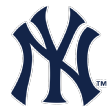
WIN FORECAST: 104.4 | CHANGE FROM AUGUST: +2.0
DIVISION%: 99.9 | PLAYOFF%: 100.0
PENNANT%: 23.0 | TITLE%: 10.7
Best value: DJ LeMahieu (33.4 SV) -- Rather than Coors Field inflating LeMahieu's production, his first season with the Yankees makes it look as if it was holding him back. He epitomizes what the Yankees have done this season.
Worst value: Giancarlo Stanton (-24.2 SV) -- After two healthy seasons, Stanton has fallen back into his injury-prone ways and has gotten into just nine contests all season because of biceps and knee injuries. He has averaged 43 homers and 109 RBIs per 162 games over his 10-year career, but he has played in 150-plus games just three times. Without the injuries, Stanton would be on an 800-homer pace for his career. As for the Yankees, the good news is that Stanton has eight more seasons (plus a club option) left on his deal to try to make up for this year's SV shortfall.

WIN FORECAST: 101.4 | CHANGE FROM AUGUST: +0.2
DIVISION%: 98.9 | PLAYOFF%: 99.9
PENNANT%: 23.8 | TITLE%: 12.9
Best value: Max Kepler (35.4 SV) -- Kepler has been amazing, but the Twins' roster is bulging with tremendous performance-to-pay guys. Kepler's SV ranks 29th in MLB, but Jorge Polanco (34th), Jose Berrios (35th), Mitch Garver (59th), Jake Odorizzi (85th), Byron Buxton (94th) and Nelson Cruz (107th) aren't far behind.
Worst value: Willians Astudillo (-2.6 SV) -- This is the storyline that has been lost during the Twins' surge to the single-season team home run record: This is an amazingly deep roster, with no significant players still around on pace to finish even a win below replacement.
WIN FORECAST: 98.0 | CHANGE FROM AUGUST: +5.0
DIVISION%: 93.0 | PLAYOFF%: 100.0
PENNANT%: 18.6 | TITLE%: 7.5
Best value: Ronald Acuna Jr. (45.0 SV) -- Yeah, you could have guessed this one. The extension Acuna signed before the season is backloaded, so Atlanta is getting his near-MVP-level production this season for just $1 million.
Worst value: Johan Camargo (-7.0 SV) -- It's been a rough season for Camargo, who has found himself back in the minors at times after seemingly establishing himself as a superutility player a year ago. We should note that Camargo's SV is just a hair worse than that of starter Mike Foltynewicz, who has performed closer to replacement level but earns considerably more money ($6 million, versus Camargo's salary at near league minimum).
Prime contenders
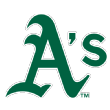
WIN FORECAST: 94.7 | CHANGE FROM AUGUST: +2.4
DIVISION%: 0.2 | PLAYOFF%: 83.8
PENNANT%: 7.9 | TITLE%: 3.7
Best value: Matt Chapman (48.6 SV) -- A lot of times when a player's WAR figures are dominated by defensive value, you're a little leery because of the year-to-year volatility of some of the leading metrics. But there has been nothing volatile about Chapman's defensive numbers: He is on pace to post 19 defensive runs saved, a total he has matched or exceeded in each of his three big league seasons. And he can hit.
Worst value: Khris Davis (-23.9 SV) -- The A's have set the standard in efficient spending throughout the Billy Beane era, and this season has been no different. Only four teams have a higher total SV this season than Oakland. But the A's have had to overcome a startlingly bad season from Davis, the only player to whom they'll pay eight digits this season. Davis' OPS has dropped from .874 to .679, and worse, he isn't going to hit .247 again.
WIN FORECAST: 93.8 | CHANGE FROM AUGUST: -0.7
DIVISION%: 0.1 | PLAYOFF%: 68.6
PENNANT%: 5.4 | TITLE%: 2.2
Best value: Charlie Morton (33.9 SV) -- Leave it to the Rays. For once, they splurge in the free-agent market and on a pitcher in his mid-30s, no less. And it still turns out to be a hyper-efficient investment.
Worst value: Daniel Robertson (-3.7 SV) -- Robertson looked like a plus-hitter last season and a valuable utility player, but he struggled to a .202 average into June, then ended up undergoing arthroscopic surgery on his knee. He is back in the bigs with the September roster expansion. Obviously, the scale of his team-worst SV is no big deal, which you'd expect from the Rays.
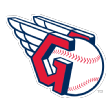
WIN FORECAST: 93.1 | CHANGE FROM AUGUST: -1.1
DIVISION%: 1.1 | PLAYOFF%: 46.8
PENNANT%: 3.2 | TITLE%: 1.1
Best value: Shane Bieber (46.0 SV) -- Perhaps I'm out of touch, but if we could quantify singer performance in terms of fWAR, I have no doubt that this Bieber would greatly outperform the other one, who is -- in the words of Kurt Vonnegut Jr. -- "fabulously wealthy" but produces at well below replacement level. His SV pales in comparison to Bob Marley's, and Marley has been dead for nearly 40 years.
Worst value: Corey Kluber (-15.0 SV) -- Even if Kluber makes it back this season, it will be too late to really salvage much in terms of 2019 fWAR. Kluber will earn $17.2 million this season, and he was only roughly at replacement level even before he was hurt. Klubot has been one of the faces of this era for the Indians, but the $13.5 million option Cleveland has on him for next season no longer feels like a no-brainer for an organization that has become increasingly tightfisted.
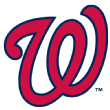
WIN FORECAST: 91.6 | CHANGE FROM AUGUST: +6.5
DIVISION%: 7.0 | PLAYOFF%: 96.5
PENNANT%: 11.6 | TITLE%: 4.7
Best value: Anthony Rendon (44.1 SV) -- Rendon has hit .388/.464/.676 since the All-Star break, and he started to close the gap in the NL MVP race with Bellinger and Christian Yelich. Even better, it seems as if his profile has increased as of late as casual fans wake up to just how good he is. It's not a bad sequence of events for a player who will be the best or second-best player in this winter's free-agent market.
Worst value: Ryan Zimmerman (-18.0 SV) -- Zimmerman has had a couple of big hits since his long layoff from plantar fasciitis finally ended. It's nice to see the longtime Nat contribute to what has become a feel-good season for the franchise. Still, as you can see from his SV, Zimmerman's salary is based on past numbers he isn't likely to put up again.

WIN FORECAST: 90.9 | CHANGE FROM AUGUST: +6.3
DIVISION%: 77.1 | PLAYOFF%: 90.5
PENNANT%: 13.3 | TITLE%: 4.9
Best value: Jack Flaherty (35.4 SV): Flaherty has been the breakout pitcher of the second half of the season. Since the break, Flaherty is 5-1 with a 0.85 ERA (not a typo) over 63⅓ innings. He has struck out 79 and given up just three homers, after allowing 20 before the break. Everyone wanted the Redbirds to trade for a No. 1 starter at the deadline, but it seems they already had one in their rotation.
Worst value: Yadier Molina (-12.6 SV) -- Molina's teammate Paul DeJong has an agent named Burton Rocks who espouses something called the "Quantified Intangible Sheet." It is basically a method that expresses intangible value as a metric. (There's a TED Talk!) Anyway, the point here is that in a cold fWAR measurement against Molina's $20 million 2019 salary, he doesn't come out so well. But I challenge you to find anybody in the city of St. Louis who will tell you that Yadi is not worth every penny.
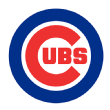
11. Chicago Cubs
WIN FORECAST: 88.3 | CHANGE FROM AUGUST: -0.7
DIVISION%: 22.8 | PLAYOFF%: 66.5
PENNANT%: 6.0 | TITLE%: 2.1
Best value: Javier Baez (35.2 SV) -- Baez isn't in the thick of the NL MVP race this time around, but he remains the best player on the Cubs and a bona fide star. Baez debuted in the majors way back in 2014, but he still has two more arbitration seasons left after this one, in which he is earning $5.2 million. It's a bargain.
Worst value: Craig Kimbrel (-13.6 SV) -- Pretty much every word written about Kenley Jansen above applies to Kimbrel, though in his case, one is inclined to give him the benefit of the doubt because of his late start to the 2019 season. His rate of 12.3 strikeouts per nine innings is a career low despite the leaguewide rise in whiffs. His trajectory has tracked similarly to that of Jansen ever since they won their respective leagues' reliever of the year awards in 2017.
Hanging on

12. Boston Red Sox
WIN FORECAST: 86.9 | CHANGE FROM AUGUST: +1.5
DIVISION%: 0.0 | PLAYOFF%: 0.9
PENNANT%: 0.1 | TITLE%: 0.0
Best value: Rafael Devers (51.3 SV) -- You expect the steepest ascensions in the performance of young hitters to come in their early 20s, if they are good enough to reach the majors that young, but that does little to explain what Devers has done this season in the wake of what he didn't do last season. The transformation has been startling. He now is flat-out one of the best all-around hitters in the game, with an OPS that has gone from .731 to .948.
Worst value: Nathan Eovaldi (-18.0 SV) -- Injuries have played at least a part in Eovaldi's 2019 flirtation with replacement level. Hopefully, they've played a large part, because Boston is on the hook for three more seasons at this year's figure of $17 million. And while the Red Sox have plenty of financial might, their annual dance with luxury tax thresholds isn't likely to get any simpler.
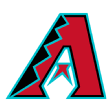
WIN FORECAST: 86.4 | CHANGE FROM AUGUST: +2.8
DIVISION%: 0.0 | PLAYOFF%: 38.6
PENNANT%: 3.0 | TITLE%: 1.1
Best value: Ketel Marte (54.6 SV) -- Who out there had Ketel Marte with a 145 wRC+ this season? Anybody? I'm afraid I'm going to have to see some documentation.
Worst value: Yasmany Tomas (-17.3 SV) -- No, it's not over yet. Tomas, the second-highest-salaried player on the Diamondbacks' roster, is on the books for $17 million next season. If he doesn't play in the majors, though, he won't show up again on this list. It's a distinct possibility. Tomas hasn't had a bad season at Triple-A Reno, but the problem is that in 2019, you can't walk down Jefferson Street without tripping over a mono-skilled slugger who can do what he does.

WIN FORECAST: 83.4 | CHANGE FROM AUGUST: +1.0
DIVISION%: 0.0 | PLAYOFF%: 4.1
PENNANT%: 0.2 | TITLE%: 0.0
Best value: J.T. Realmuto (39.2 SV) -- Why you always have to look beneath the WAR hood: Realmuto has about the same number of plate appearances right now as he had last season -- 528 versus 531. His fWAR is identical (4.9). Same season, right? Nope. Realmuto has flipped his underlying offensive and defensive value as a Phillie. His framing, among other things, has compensated for a mild downtick at the plate, at least once you account for league levels and the move to a better hitting ballpark. In any event, the Phillies have gotten what they hoped for from Realmuto, even if how they've gotten it has been a surprise.
Worst value: Jake Arrieta (-13.8 SV) -- The Phillies are underwater so far on the free-agent deal they reached with Arrieta before last season. Perhaps if this year's struggles were attributable to the bone spurs in his elbow that ended his campaign, he'll be able to make up some of that next season.

15. New York Mets
WIN FORECAST: 82.4 | CHANGE FROM AUGUST: +1.4
DIVISION%: 0.0 | PLAYOFF%: 2.5
PENNANT%: 0.0 | TITLE%: 0.0
Best value: Jacob deGrom (47.5 SV) -- DeGrom has enjoyed another dominant season in what will be the last year he'll be getting a team-friendly salary for quite some time. DeGrom will leap from $9.5 million to $25.5 million next season, then his salary shoots up to over $30 million. If he keeps pitching like this, he'll be worth it.
Worst value: Juan Lagares (-19.3 SV) -- As prevalent as offense is in the majors this season, it just doesn't seem possible that a hitter like Lagares (.203/.269/.286) would earn more than 250 plate appearances, even if he is a plus-defender at a premium position. At $9 million, Lagares is being paid just $500,000 less than deGrom in 2019.
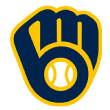
WIN FORECAST: 81.9 | CHANGE FROM AUGUST: +1.5
DIVISION%: 0.1 | PLAYOFF%: 1.3
PENNANT%: 0.0 | TITLE%: 0.0
Best value: Christian Yelich (56.2 SV) -- Remember that "Let the kids play" commercial early in the season in which Yelich belts out, "I'm gonna hit 50 home runs this season." Well, Yelich is going to hit 50 home runs this season, and he is locked in a close race with Cody Bellinger in his quest to become the NL's first repeat MVP since Albert Pujols a decade ago. And he is being paid just $9.725 million this season.
Worst value: Travis Shaw (-14.2 SV) -- What in the world happened to Travis Shaw this season? Shaw went from a foundation piece on a club that finished one win shy of the World Series to a guy who logged some serious time this season for the San Antonio Missions. Batting average and RBIs don't tell you everything, but in Shaw's case, they tell you plenty: He is hitting .159 in the majors this season with 13 RBIs in 69 games.
Playing out the string
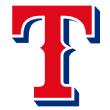
17. Texas Rangers
WIN FORECAST: 77.6 | CHANGE FROM AUGUST: -4.1
DIVISION%: 0.0 | PLAYOFF%: 0.0
PENNANT%: 0.0 | TITLE%: 0.0
Best value: Lance Lynn (41.6 SV) -- The Rangers did a lot of wish-casting with their rotation during the last offseason, but sometimes if you cast enough hooks, you'll eventually reel in a big fish. Lynn has been superb this season in Texas. Before missing the 2016 season, Lynn was one of the top righties in the National League -- and with a 14-9 mark, 3.77 ERA and career-high 202 K's, he has looked like that kind of pitcher for the Rangers.
Worst value: Jeff Mathis (-21.8 SV) -- Mathis currently ranks dead last in fWAR (-2.0), so there's the explanation for the unsightly SV, even though he is making only $3 million this season. His already horror-show offensive game has somehow gotten worse, though it's not like the Rangers were expecting anything from Mathis with the stick. The real problem is that with Arizona last season, Mathis put up 13.1 framing runs above average, per FanGraphs. This season, he is at minus-1.9. I'll admit that I still haven't been able to fully wrap my arms around framing metrics or at least the scale of them, but if this is real, either Mathis has gotten a lot worse at his most essential skill or everyone else has gotten a lot better.
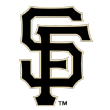
WIN FORECAST: 76.7 | CHANGE FROM AUGUST: -1.4
DIVISION%: 0.0 | PLAYOFF%: 0.0
PENNANT%: 0.0 | TITLE%: 0.0
Best value: Madison Bumgarner (20.2 SV) -- Simply put, even with the time Bumgarner has lost to injury, the extension he signed with the Giants in 2012 has made him one of the most valuable pitchers in baseball. He is making $12 million this season, his last before free agency. Bumgarner just turned 30 years old and has six 200-inning seasons under his belt; it will be seven if he gets there this year. Nevertheless, when you look at the performance and value of over-30 elite starters this season, you have to think he'll make out just fine going forward, whether it's in San Francisco or elsewhere.
Worst value: Brandon Belt (-16.3 SV) -- Belt's tumble this season to replacement level has for now rendered his contract, which has two more years remaining, a bit of an albatross. This thing is, if the Giants do enter into a couple of years of transition, and they have to play Belt anyway, he might get a couple of more years of quasi-full-time at-bats. At that point, we'll look and ask, "Brandon Belt has played for the Giants for how long?"

19. Cincinnati Reds
WIN FORECAST: 75.5 | CHANGE FROM AUGUST: -4.0
DIVISION%: 0.0 | PLAYOFF%: 0.0
PENNANT%: 0.0 | TITLE%: 0.0
Best value: Luis Castillo (37.4 SV) -- It's still the early days for one of baseball's ascendant pitchers. Castillo has one more pre-arbitration season left, so he could well earn this spot next year as well. His 3.25 ERA by itself is a nice number. Then you factor in the offensive surge in baseball and the fact that he plays half his games at a hitters' park such as Great American Ballpark and that figure looks borderline miraculous. Best thing about it: Castillo's home ERA (2.89) is actually better than his mark on the road (3.90).
Worst value: Joey Votto (-21.1 SV) -- This result makes me too sad for elaboration.

20. San Diego Padres
WIN FORECAST: 74.6 | CHANGE FROM AUGUST: +1.1
DIVISION%: 0.0 | PLAYOFF%: 0.0
PENNANT%: 0.0 | TITLE%: 0.0
Best value: Fernando Tatis Jr. (33.3 SV) -- The Padres should probably just go ahead and sign Tatis to an 18-year contract. Not only is the kid really good, but he is going to put fans in seats wherever he goes. A rookie shortstop with a .590 slugging percentage? I don't care about the context. Sign me up.
Worst value: Eric Hosmer (-15.4 SV) -- Yeah, the Hosmer contract already is getting dicey. He has been better in terms of raw production, but that production still doesn't match his salary. And it's possible it never will. Hosmer's average has rebounded from .253 to .285, better than his career mark. He is around his norms in on-base and slugging, and he has more than 20 homers and probably will drive in 100 runs. But any hopes of Hosmer's power game being unlocked in the launch-angle era are gone. He still is a player who hits the ball hard, but he hits it on the ground -- a lot. Only one other qualifying hitter in the majors has produced a higher rate of grounders.
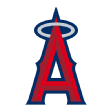
WIN FORECAST: 74.2 | CHANGE FROM AUGUST: -4.3
DIVISION%: 0.0 | PLAYOFF%: 0.0
PENNANT%: 0.0 | TITLE%: 0.0
Best value: Mike Trout (63.1 SV) -- Trout's per-season salary beginning next year will jump from $17.7 million to $37.7 million. A nice little raise! If that latter figure were his income this season, his SV still would easily be the best on the Angels. His actual MLB rank in SV is second, behind Bellinger, but if it were figured at next season's salary, he still would rank 14th in the majors.
Worst value: Albert Pujols (-28.8 SV) -- If you love Albert Pujols, as I do, then just keep counting up those hits, homers and RBIs and hope against hope that he continues to somehow keep his career average at .300 or better. Just don't focus on value stats that, well, tell an accurate tale. The problem is, we can't have it both ways. We can't preach about the Angels maximizing Trout's chances for the postseason and indulge ourselves in 500 Pujols at-bats. The two desires work counter to each other.
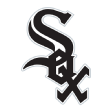
WIN FORECAST: 72.1 | CHANGE FROM AUGUST: +2.0
DIVISION%: 0.0 | PLAYOFF%: 0.0
PENNANT%: 0.0 | TITLE%: 0.0
Best value: Lucas Giolito (45.2 SV) -- Giolito's rookie season was so rough that it had you nervous about a ceiling that had once been informed by a period in which he was touted as one of baseball's best pitching prospects. His second season could not have been more different, either in terms of results or style. Giolito has gone from looking overmatched to looking like an ace who can front the White Sox's rotation for years to come. He has been one of the season's best stories.
Worst value: Welington Castillo (-18.4 SV) -- The White Sox have options behind the plate, and none of them likely involves picking up Castillo's option for next season. Castillo has his moments as a hitter, but he is a stopgap type of player who shows up on teams in this situation.

WIN FORECAST: 70.8 | CHANGE FROM AUGUST: +0.0
DIVISION%: 0.0 | PLAYOFF%: 0.0
PENNANT%: 0.0 | TITLE%: 0.0
Best value: Bryan Reynolds (29.8 SV) -- Amid the onslaught of homers and strikeouts, we've seen a few young players bob up the last couple of years who wouldn't look out of place in the 1970s. David Fletcher, Luis Arraez, Jeff McNeil ... and Bryan Reynolds, who has a chance to become the first rookie to lead the National League in batting. Before the season, Baseball America ranked Reynolds as Pittsburgh's No. 9 prospect. That might well prove to be accurate, but you can't help but wonder if this type of player -- a speedy contact hitter with a little pop -- is undervalued at the moment.
Worst value: Elias Diaz (-12.1 SV) -- Diaz doesn't make any money, but he has had nearly 300 plate appearances in a below-replacement season. Given the injuries and eventual release of Francisco Cervelli, the Pirates could have used more from this roster spot. For a team that is supposedly conservative with spending, there are an awful lot of players with negative SVs on the Pirates. The team total ranks just 20th.

24. Colorado Rockies
WIN FORECAST: 68.4 | CHANGE FROM AUGUST: -7.1
DIVISION%: 0.0 | PLAYOFF%: 0.0
PENNANT%: 0.0 | TITLE%: 0.0
Best value: Trevor Story (41.0 SV) -- You know, Trevor Story is kind of a superstar. I don't know about you, but that snuck up on me. Coors Field is folded into this factoid, but this will be his third season with a .900 OPS or better. The only shortstops with more are Alex Rodriguez, Honus Wagner, Troy Tulowitzki (see: Coors Field), Hanley Ramirez and Ernie Banks. Only four shortstops have more defensive runs saved since Story reached the majors. He is a superstar.
Worst value: Wade Davis (-20.0 SV) -- Jansen. Kimbrel. Now Davis. Signing closers to big contracts, man, it's a losing game. Exacerbating Davis' problems is the fact that two other pricey relievers (Jake McGee, minus-9.2 SV; Bryan Shaw, minus-5.7) haven't worked out for Colorado either. To be fair, Davis was pretty good a year ago in helping the Rox get to the division round of the playoffs.
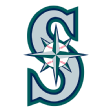
25. Seattle Mariners
WIN FORECAST: 67.5 | CHANGE FROM AUGUST: -0.1
DIVISION%: 0.0 | PLAYOFF%: 0.0
PENNANT%: 0.0 | TITLE%: 0.0
Best value: Tom Murphy (24.0 SV) -- A lot of the best values on the board today are young, cost-controlled players who have reached the majors in All-Star mode. That's not Murphy's journey. He's 28 and before this season had all of 196 career at-bats at the big league level. But this season, he has 17 homers in 218 at-bats with a .573 slugging percentage, all while posting positive framing metrics.
Worst value: Felix Hernandez (-28.8 SV) -- The end of King Felix's Mariners career has been painful, though the memories of seasons past will always loom large. Could he simply be totally washed up at age 33? Maybe. We can hold out hope that another club can hit him with the analytics wand and resurrect his game, but it's hard to see what the numbers wizards even have to work with.
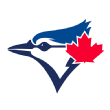
WIN FORECAST: 64.6 | CHANGE FROM AUGUST: -0.8
DIVISION%: 0.0 | PLAYOFF%: 0.0
PENNANT%: 0.0 | TITLE%: 0.0
Best value: Lourdes Gurriel Jr. (15.2 SV) -- Vlad Jr. is already so famous I don't need to write his last name, while the quick start for Bo Bichette has excited everyone, and Cavan Biggio has the name and the walks. Lost in all of this has been a breakout from Yuli's little brother, who could have cracked 30 homers if he had not injured his quad.
Worst value: Brandon Drury (-4.9 SV) -- Drury has had a bad season, and frankly, I'm pretty surprised at how far his numbers have tumbled since he left Arizona. Really, though, it's the actual SV figure here that catches my attention: General manager Ross Atkins might come across as a little too corporate from time to time, but as the Jays build back up, he has managed to clear away any sizable contract impediments. Toronto has about $30 million on the books for next season, and nearly half that is in residual money owed to the now-retired Troy Tulowitzki.
WIN FORECAST: 58.8 | CHANGE FROM AUGUST: -2.2
DIVISION%: 0.0 | PLAYOFF%: 0.0
PENNANT%: 0.0 | TITLE%: 0.0
Best value: Hunter Dozier (27.8 SV) -- Following the path blazed by Whit Merrifield, Dozier has become the latest Royals organizational player to break out at the big league level despite being at an age when most prospects have found their level. Already 27, Dozier's .890 OPS is the best by any Kansas City third baseman not named George Brett.
Worst value: Alex Gordon (-14.0 SV) -- Gordon looked resurgent at the plate early on, but his numbers have turned south as the season has progressed. Gordon has hit just .231/.302/.306 since the break. This will be it for his contract, so you can't help but wonder what the future holds.
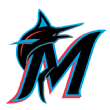
28. Miami Marlins
WIN FORECAST: 58.5 | CHANGE FROM AUGUST: -4.4
DIVISION%: 0.0 | PLAYOFF%: 0.0
PENNANT%: 0.0 | TITLE%: 0.0
Best value: Brian Anderson (28.7 SV) -- Anderson is out for the season with a broken pinkie, but he built on a decent rookie campaign with a similar performance in 2019, yet with more power.
Worst value: Wei-Yin Chen (-28.1 SV) -- You don't want a low-leverage reliever with a 6.86 ERA making $20 million, but that's where the Marlins are with Chen. Chen has an option for $22 million for next season, so get used to it. It's one of the game's worst contracts.
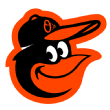
WIN FORECAST: 55.3 | CHANGE FROM AUGUST: -1.5
DIVISION%: 0.0 | PLAYOFF%: 0.0
PENNANT%: 0.0 | TITLE%: 0.0
Best value: Jonathan Villar (29.1 SV) -- Maybe it's my NBA days working on me, but Villar reminds me of a volume scorer in basketball who puts up big per-game averages for bad teams. It's probably not fair to look at it like that, because Villar has had a nice season. It's just that good teams keep trading him.
Worst value: Chris Davis (-34.4 SV) -- On a percentage basis, Davis has been better than last year. I mean, a .577 OPS is better than a .539 OPS. In other good news, with Khris Davis' struggles, now when someone verbally mentions "Chris/Khris Davis' team-worst SV" you can justifiably ask, "Which Chris/Khris Davis?" This Davis has the worst SV figure in baseball.
Race for the top pick

30. Detroit Tigers
WIN FORECAST: 48.4 | CHANGE FROM AUGUST: -2.2
DIVISION%: 0.0 | PLAYOFF%: 0.0
PENNANT%: 0.0 | TITLE%: 0.0
Best value: Matthew Boyd (23.4 SV) -- Boyd's first half saw him go 6-6 with a 3.87 ERA for a gawdawful team and emerge as a popular name on the trade deadline rumor mill. His second half has seen him go 1-4 with a 5.90 for a team that has somehow managed to play even worse. What exactly are the Tigers doing? I get that Boyd has three more years of team control, and perhaps he'll have more trade value down the line. But maybe not. He entered this season with a career 86 ERA+ over 460 innings.
Worst value: Miguel Cabrera (-32.8 SV) -- I'm not sure there's a long history of Hall of Famers who have limped through multiple end-of-career seasons on really bad teams. Historically, they'd quit or be moved to a contender to be a bit player. Mickey Mantle kind of went through it on some subpar Yankees teams in his final seasons, but those Yanks were nowhere near as bad as these Tigers. But Cabrera and the Tigers seem stuck with each other because the pay/performance ratio just isn't going to line up into anything like a tradable asset. It's bittersweet, but it doesn't undo anything that came before.

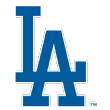 1.
1. 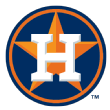 2.
2. 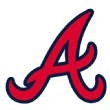 5.
5.  7.
7.  27.
27.